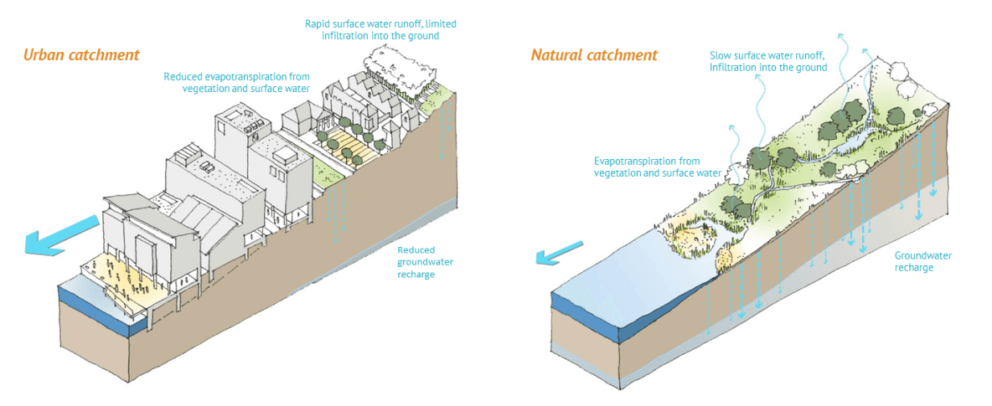Sustainable Urban Drainage Systems (SuDS) could be a nature based solution, which could be incorporated in the city Green Infrastructure. These solution replicate natural processes and restore, as far as possible, the hydrological cycle.
European cities, during the industrial revolution, experienced an important urban development that produced as a consequence, the waterproofing of large areas. Due to the alteration in the natural drainage of the runoff, it was built many rigid and manmade structures downstream.
These conventional systems using collectors, impermeable surfaces, sewers, treatment plants, etc., have not proved to be entirely efficient from an environmental point of view, nor in avoiding flood risks. This causes runoff to be transported rapidly downstream, generating very high peak flows which can cause the collapse of the sewerage infrastructures. In addition, there is a denaturalization of the urban landscape that affects not only aesthetics, but also public health and the destruction of biodiversity.
As an alternative to conventional systems, Sustainable Urban Drainage Systems or SuDS could be a nature based solution, which could be incorporated in the city Green Infrastructure. These solution replicate natural processes and restore, as far as possible, the hydrological cycle. These systems manage runoff wherever it occurs using infiltration and biological processes to improve water quality.
The main benefits of Sustainable Urban Drainage Systems are listed below:
- Decreasing peak flows, thus reducing flood risk downstream of the system.
- Reducing the flows that existing runoff systems have to manage.
- Use of rainwater to improve urban green infrastructure.
- Reduction of the “heat island” effect in urban areas.
- Recharge of aquifers and improvement of water quality.
- Minimization of the impact on the regime of watercourses.
Finally, we can conclude that Sustainable Urban Drainage Systems (SuDS) are an excellent option as an alternative or complement to existing management systems, providing a great improvement in biodiversity and living conditions in cities.




